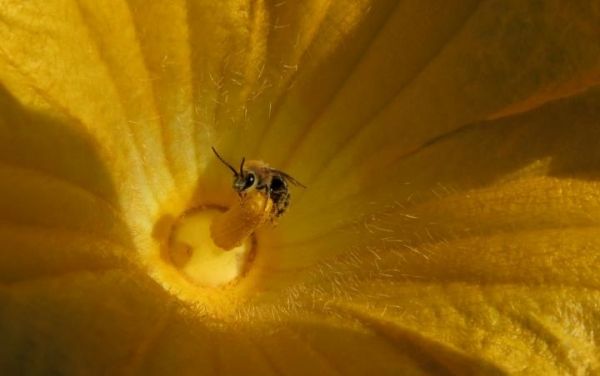An insecticide used to control pest infestations on squash and pumpkins significantly hinders the reproduction of ground-nesting bees — valuable pollinators for many food crops, a new University of Guelph study has revealed.
This first-ever study of pesticide impacts on a ground-nesting bee in a real-world context found female hoary squash bees exposed to imidacloprid dug 85 per cent fewer nests, collected less pollen from crop flowers and produced 89 per cent fewer offspring than unexposed bees.
“Because they’re not making nests and not collecting pollen, they cannot raise offspring,” said Dr. Susan Willis Chan, a post-doc in the School of Environmental Sciences (SES), who conducted the study with Dr. Nigel Raine, holder of the Rebanks Family Chair in Pollinator Conservation in SES. “That means imidacloprid-exposed populations are going to decline.”
Read more at: University of Guelph
A female squash bee in a squash flower (Photo Credit: Dr. Nigel Raine/ University of Guelph)


